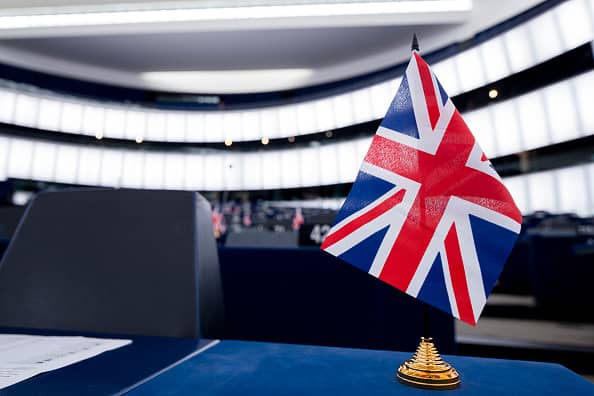25.10.2024
Franco-German differences on the management of Brexit: A political as well as an economic issue
Interview
12 avril 2019

On Wednesday 10 April, an extraordinary European Council was held to grant the UK additional time. President Macron and Chancellor Merkel took different positions, one in favour of a short extension to 30 June, the other in favour of a long extension of almost a year. Why such a disagreement?
In the face of the political chaos in Westminster, it has often been announced that the British side had failed to divide Europe in the Brexit negotiations since 2016. Although the 27 have indeed adopted a common general position on the withdrawal agreement, including the Irish backstop, member states have expressed contrasting sensitivities. While the perception of Brexit has been highly critical among European leaders in general, Paris has focused more on discouraging the potential exit aspirations of other countries. Meanwhile Berlin’s political structure and the expression of economic interests in particular have led the German government to voice its concern over the trade and financial consequences of a break with London.
The issue runs deeper than a simple difference of priority between economics and politics, however. Despite Berlin’s support for the exit agreement that the British Parliament rejects, there is generally a fair amount of unease in Germany at any suggestion of a clear break with the United Kingdom, including a hasty exit without agreement. This discomfort goes beyond the simple economic equation. The willingness to grant a substantial delay to try and find the political means of an orderly Brexit follows naturally from this. The rapprochement with the United Kingdom has been an important aspect of the construction of the Federal Republic’s political identity, although less visible than the Franco-German reconciliation, carried by a succession of strong symbols until the 1970s. The idea of validating a certain break with London for political cohesion purposes, in order to preserve the integrity of the EU, is not well received in Germany, despite the rather general condemnation of the Brexit vote. The preservation of ties with Great Britain and the model of liberal democracy that it historically embodies actually refers to important political identity issues for the German elite, faced with its own political crisis and the weakening dynamics of European integration. Additionally, it should be remembered that Angela Merkel experienced from the inside the collapse of the political system in which she carried out the first chapter of her political career. Her approach to the risk of a political shock is also conditioned by this experience. In short, although the French and German leaders are anxious to avoid a spiral of disintegration of the Union, their respective views of the problem are not guided by the same sensitivity or the same historical horizon.
Is there a real crack in the Franco-German couple? Has the union of the EU-27 on the Brexit issue unravelled?
There is a relative reversal of roles between France and Germany if we compare their stances on Brexit with those on Grexit, the scenario of Greece being excluded from the euro zone by the Troika, until July 2015. While the French government tended at the time to call Berlin to moderation to avoid a systemic breakdown, the opposite is now happening on the issue of Europe’s management of Brexit. Following the British vote, Yanis Varoufakis spoke in the British media to predict Germany’s desire to treat the UK like Greece, failing to take into account the unequal or even hierarchical nature of power relations in the concrete functioning of the EU.
In addition, while the European federalism of Wolfgang Schäuble, Germany’s almighty Finance Minister during the euro crisis, was indeed reflected in a desire to meticulously control its weakest partners in exchange for financial assistance, this type of European federalism, especially linked to a generation of politicians raised in West Germany in the post-war period, is now in decline in the country. The reorientation of the CDU-CSU’s identity against a backdrop of rapid progress by the country’s far right is also reflected in a reorientation towards domestic rather than European issues. While being focused on a particular vision of the country’s interests, it is accompanied by both a relative lack of interest in the idea of close control over its partners and an increased rejection of any kind of financial solidarity.
Beyond the question of the management of Brexit, the Franco-German relationship is now in a delicate situation. Emmanuel Macron’s European reform projects, focusing on the architecture of the euro zone, were essentially rejected by Berlin because they ran up against the taboos of German political culture with regard to financial solidarity with its partners, particularly those in the southern part of the euro zone. The idea of a European army, relaunched following this disagreement, remains evanescent and its promotion does not make it possible to overcome the lack of convergence on major political and economic decisions.
Brexit management takes place in this complex climate. The strong reactions in Germany in recent days to Emmanuel Macron’s stance at the European summit on the Brexit delay indicate a step further in the development of a certain defiance in bilateral relations. This climate seems to further refute the hypothesis that a no-deal Brexit could help to strengthen the EU and reactivate the notion of a “Franco-German couple” (a pillar of French political speech, which unfortunately remains untranslatable in Goethe’s language). Given the stakes involved in terms of economic interests and political identity in Germany, the opposite hypothesis seems to be confirmed. The challenge for Europe’s balance today consists more than ever in reaching an arrangement, not only in order to preserve links with the United Kingdom but also, in fact, to prevent a deterioration in the links between the remaining Member States.